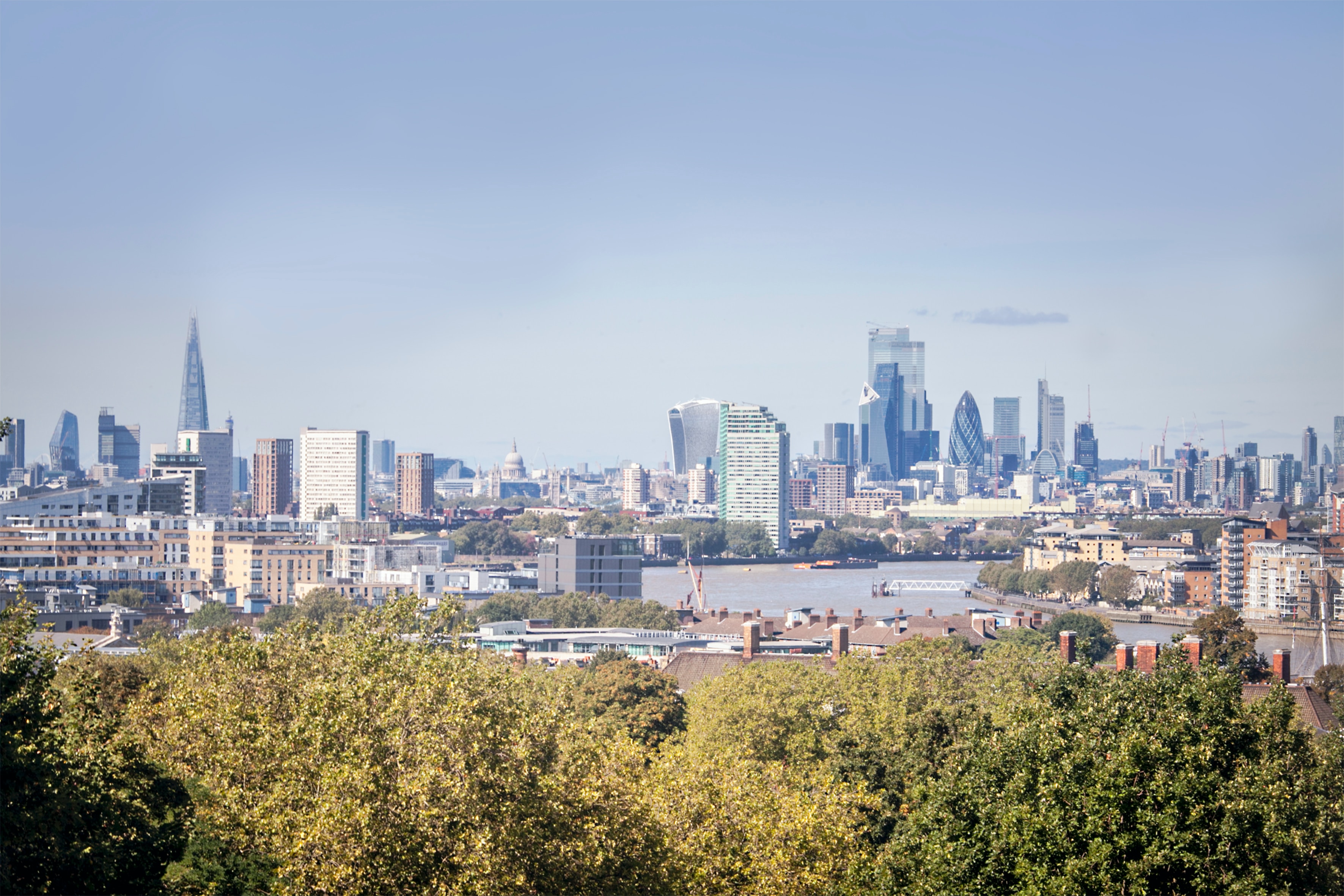2023 has been another year of escalating social and ecological crisis, where state and corporate actors continue to violently stifle determined efforts from below to avert further breakdown of our communities and life systems, and create just futures for all on this planet.
We have seen - once again - record breaking summer temperatures, more climate disasters, brutal imperial onslaughts, and the continued rise of far-right authoritarianism around the world, with huge swathes of the global population suffering from each of these.
It is incredibly difficult then to try and arrive at a ‘good news’ story of 2023, and this article is not an attempt to do so. Nonetheless, we continue to draw inspiration and resolve from grassroots movements fighting for social and environmental justice the world over, including the degrowth community.
The aim here is simply to take a moment to summarise some of the notable developments in the degrowth community in 2023, as captured by our blog.
This leads to another disclaimer: this summary does not necessarily reflect the most ‘important’ events relevant to degrowth, nor is it globally representative. As such, we would love to hear from as many of you as possible about this year’s degrowth developments in your communities. Reply to the post of this article on our social media channels to let us know!
But for those who may have missed some of the things we were posting about on our blog this year, here goes a quick roundup.
Interest in degrowth continues to spread and solidify, as reflected by the emergence of many new degrowth groups in 2023. In February, we covered the launch of Degrowth Network Australia (DNA), which developed out of more informal connections between degrowth scholars, activists and advocates in Australia.
DNA has got to work mapping out the plethora of existing projects and initiatives across the country that are aligned with degrowth, from academic research to “repair cafes, tool libraries, programs to diminish waste, local community supported agriculture and regenerative farming”.
In May we announced the second edition of the degrowth festival Alt-Shift, which took place in Austria in August. The festival – whose first edition occurred in 2022 – is organised by the Vienna-based Shift Slow association.
It brings together a programme of collective learning which draws on politics, arts and culture oriented towards eco-social transformation. Crowdfunding for another edition of the festival in summer 2024 has already begun.
Also in May, we celebrated the opening publications of Degrowth journal, the first academic journal dedicated to degrowth. The open-access, peer-reviewed journal was launched by a group of young scholars – predominantly PhD students – following an earlier article on degrowth.info in 2020, which identified the roadblocks to the development of the degrowth discourse posed by the lack of a go-to home for academic debates around the concept.
The journal also seeks to practice degrowth in its own structures, providing a counterpoint to the privatisation of knowledge by an oligopoly of corporate publishers. Since we announced the initial batch of articles, several more have been published, and are all free to read on the journal’s website, or in our library.
July brought a review of the ‘Beyond Growth’ conference hosted at the European Parliament in Brussels, written by Myriam Best. The conference had taken place a couple of months earlier, in May, and was organised by a group of MEPs led by the Green group’s Phillipe Lamberts, supported by a range of civil society organisations. Around 7000 people attended the conference, split between in-person and online.
Speakers at the conference included a fairly broad range of NGO representatives, academics, MEPs, and campaigners, while the substantial contingent of relatively younger degrowth-interested students and activists amongst the in-person attendance was notable.
This convergence of perspectives made for a fairly tense atmosphere, where academics scolded politicians and more corporate types for their lack of a grasp on the severity of ecological breakdown underway, while several attendees – often from the younger portion – repeatedly called out the striking lack of acknowledgement throughout the conference of Europe’s colonial history and continuing extractive relationships with the global South.
In August, we announced the birth of the International Degrowth Network, or IDN. The IDN was founded at the fourth assembly of the international degrowth network, which was held immediately before the 2023 international degrowth conference in Zagreb, Croatia. The formation of the IDN was made possible due to the work of an open collective of volunteers under the name Organising the Degrowth Network (ODN), which spent twelve months developing this new structure to propose to the degrowth community.
Nearly 100 academics, activists and practitioners attended the assembly from around the world, in order to in to discuss the implementation of a new international coordinating structure for the degrowth movement. The IDN launched with 25 founding members and many more have joined since. It is comprised of a number of different working groups, known as ‘circles’, covering themes including activism and practice, research, communication, organization, and events. See the article for more information on how to get involved.
With the arrival of Autumn, we published in September an overview of the early months of a new political collective, Degrowth London. The group was formed by friends and acquaintances with a shared interest in degrowth, and a shared recognition of the lack of a dedicated space in London in which to come together to discuss ideas around the concept.
The article details the steps and challenges involved in getting the group off the ground, including the careful formation of organisational structures and decision-making processes. The collective was publicly launched in May, with almost a hundred people attending the in-person event, which included introductions to degrowth and Degrowth London, an exercise to envision desired futures for the city, and a forum for sharing relevant events and campaigns going on across London.
More information on Degrowth London can be found on the group’s website.
By October, it was time to announce the 10th international degrowth conference. The conference will be held in Pontevedra, Spain, and is titled ‘Science, Technology, and Innovation beyond growth: Cultivating collective creativity for a sustainable future’.
The main conference will take place from 18-21 June 2024, while a series of workshops, debates and exhibitions open to the public will occur throughout the year and during the conference itself. Not for the first time, the degrowth conference will operate in conjunction with the Conference of the European Society for Ecological Economics.
For more information on attending or presenting at the conference, visit its website.
Finally, in October we also shared an account of the creation of a degrowth caucus within the Democratic Socialists of America (DSA), authored by C.P.B. Murphy. DSA is the largest socialist organisation in the United States, and ‘caucuses’ are internal groupings of members who come together to advance a certain perspective within the organisation.
The new degrowth caucus, named ‘Caracol DSA’, was set up by a group of DSA members to build awareness of and support for degrowth within the organisation. The article describes previous and ongoing tensions around the concept of degrowth within DSA, where it is currently very much a minority perspective.
Caracol DSA will conduct political education around degrowth, support degrowth aligned proposals and candidates within national DSA structures, and seek to connect with the international degrowth movement. Find more information about them on their website.
So that was degrowth in 2023, as told by the voices of the degrowth community who shared their news through our blog! Thanks to all the contributors and collaborators who make our work possible. Once again, please share with us on social media what events happened where you are – we know this article only touches on a tiny number of developments that we were able to cover.
In a year in which we in the degrowth.info team have struggled with capacity issues and having to balance other life commitments with our voluntary work for the collective, we wanted to reaffirm how grateful we are to everyone who has read our articles, used our resources, sent us a message, or supported us through donations in 2023.
We do this work because we believe degrowth is essential to building just and sustainable futures, and we are always delighted to hear when some of our work has been useful to someone else.
We wish a safe and happy holiday period to everyone, and reaffirm our solidarity to all those around the world for whom this is not possible.
See you in 2024.

For every executive, financier and oligarch in London chasing power and obscene wealth, there are multiple times more people seeking to build inclusive, joyful, and sustainable communities. Degrowth London is a new group joining this effort.

The first International Degrowth Conference held in Paris in 2008 was followed by another ten other conferences, most of which took place in Europe. These conferences provided room for the Degrowth community to meet and exchange on latest research. In Christiania Town (Copenhagen) in 2018, just before the 6th International Degrowth Conference in Malmö, degrowthers met in a new format. Going beyond research-related conversations, they instead discussed the “how” of Degrowth and started to organise the movement.